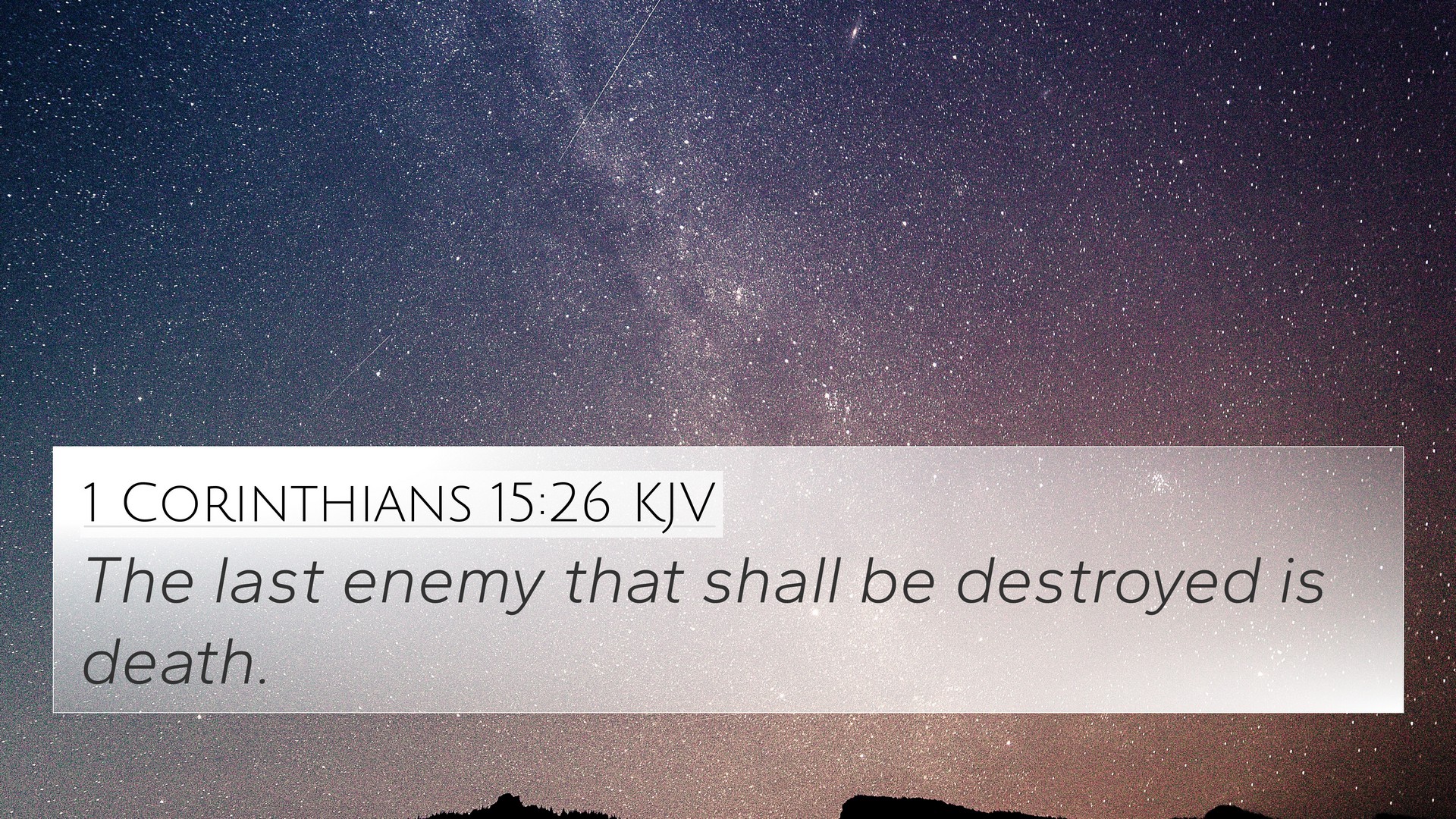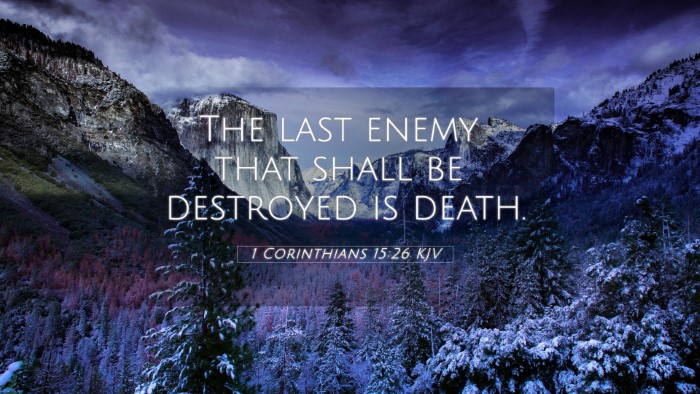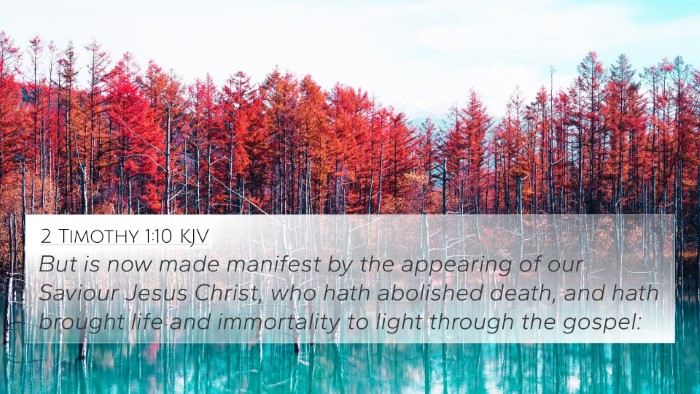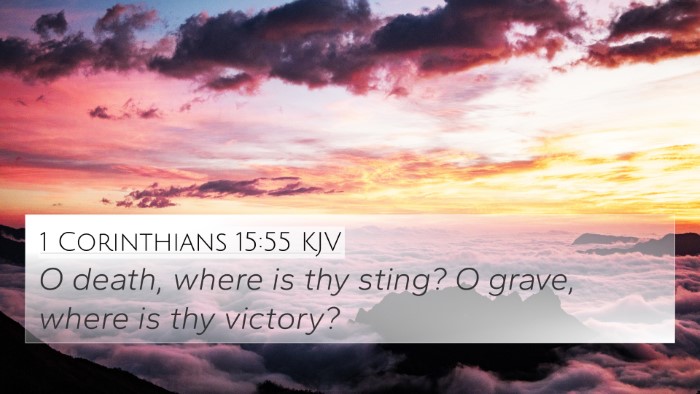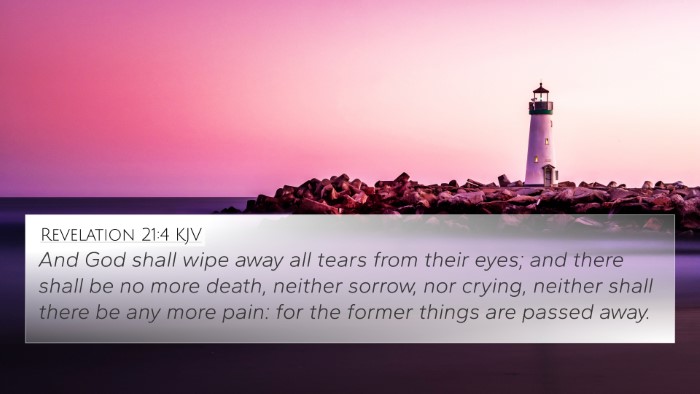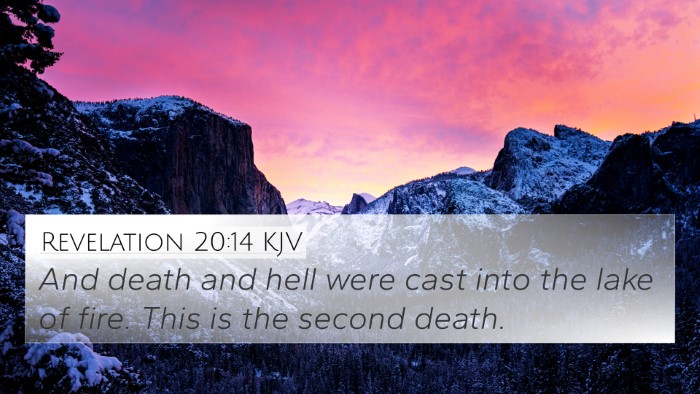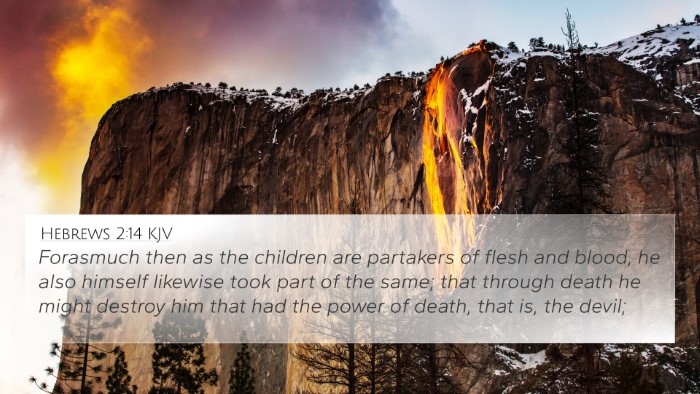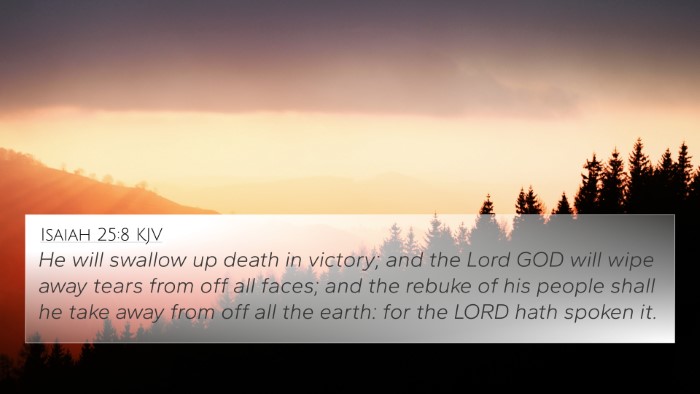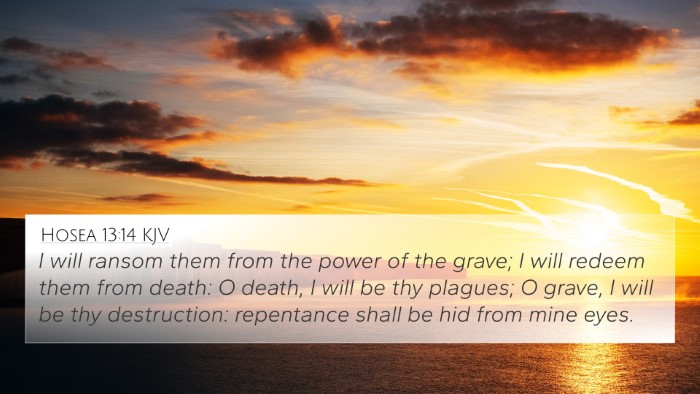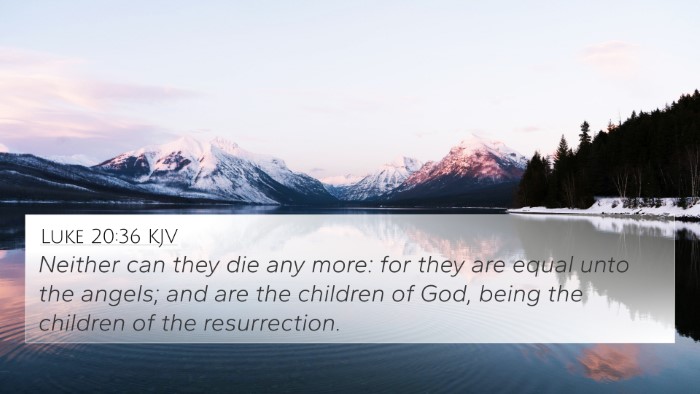Understanding 1 Corinthians 15:26
Verse: "The last enemy that shall be destroyed is death." - 1 Corinthians 15:26
This verse from Paul's first letter to the Corinthians encapsulates a profound truth about the ultimate victory of Christ over death. It highlights the eschatological promise that death, which is often viewed as the final adversary, will ultimately be vanquished.
Contextual Background
The apostle Paul addresses the concerns of the Corinthian church regarding the resurrection of the dead. The context of 1 Corinthians 15 is crucial as it deals with doubts surrounding the resurrection of Jesus and the hope of eternal life for believers.
- Ultimate Victory: Paul emphasizes that the resurrection of Jesus marks the beginning of the final defeat of death.
- Encouragement for Believers: This promise serves to encourage believers, assuring them that death is not the end but a passage to eternal life.
Commentary Insights
Insights from respected public domain commentaries offer depth to understanding this verse:
Matthew Henry's Commentary
Henry notes that death is portrayed as an enemy, one of the greatest foes to humanity. He emphasizes that the destruction of death signifies the completion of redemption's work through Christ. This destruction is not immediate but secured through Christ's resurrection, giving confidence to believers.
Albert Barnes' Notes
Barnes discusses how the phrase indicates a future event, pointing to the resurrection when death will be fully abolished. He connects this to the themes found in Revelation 20:14, where it states that death and hell will be cast into the lake of fire, further illustrating the eventual defeat of death in God's plan.
Adam Clarke's Commentary
Clarke reflects on the theological implications of this verse, stating that death's destruction is integral to the Gospel's core message. He also elaborates on the significance of Christ being the firstfruits of those who rise from the dead, establishing a direct connection to the hope of resurrection for all believers.
Bible Cross-References
This verse can be cross-referenced with several significant scriptures that illuminate its meaning further:
- Romans 6:9: "Knowing that Christ being raised from the dead dieth no more; death hath no more dominion over him."
- 1 Thessalonians 4:14: "For if we believe that Jesus died and rose again, even so them also which sleep in Jesus will God bring with him."
- Revelation 20:14: "And death and hell were cast into the lake of fire. This is the second death."
- Hebrews 2:14: "Forasmuch then as the children are partakers of flesh and blood, he also himself likewise took part of the same; that through death he might destroy him that had the power of death, that is, the devil."
- John 11:25-26: "Jesus said unto her, I am the resurrection, and the life: he that believeth in me, though he were dead, yet shall he live."
- Philippians 3:21: "Who shall change our vile body, that it may be fashioned like unto his glorious body, according to the working whereby he is able even to subdue all things unto himself."
- Isaiah 25:8: "He will swallow up death in victory; and the Lord GOD will wipe away tears from off all faces."
Thematic Connections
The verse also establishes thematic connections with various biblical narratives and teachings:
- The Assurance of Resurrection: The promise that believers will also partake in resurrection parallels with the teachings found in John 5:28-29, highlighting the hope of eternal life.
- The Nature of Eternal Life: In connecting with verses from John's writings, such as 1 John 5:13, believers are reassured of their eternal security amidst the looming specter of death.
- Unity in Christ: Galatians 3:28 expresses the unifying power of Christ's resurrection, illustrating that death's destruction is relevant to all believers, regardless of their background.
Applying the Verse in Study
To fully grasp the meaning and implications of 1 Corinthians 15:26, consider employing various tools for Bible cross-referencing:
- Bible Concordance: Use a concordance to find related verses and deepen your understanding.
- Comparative Bible Verse Analysis: Analyze this verse in light of others to see the broader narrative of death and resurrection throughout Scripture.
- Bible Reference Resources: Utilize study Bibles with cross-references to explore interconnected themes and verses.
- Cross-Referencing Bible Study Methods: Implement methods like thematic charts to visualize connections between this verse and others.
- Inter-Biblical Dialogue: Engage with commentaries and studies that connect Old Testament prophecies with New Testament fulfillment.
Conclusion
The verse 1 Corinthians 15:26 stands as a powerful declaration of God's promise to eliminate death as an enemy. By engaging in critical analysis and cross-referencing related scriptures, believers can gain a fuller understanding of the victory secured through Christ’s resurrection. This knowledge not only informs theological beliefs but also nurtures hope and encouragement in the face of life's ultimate challenge—death itself.
